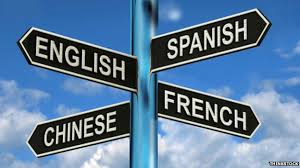Quick Quote
Archives
- November 2023
- October 2023
- September 2023
- August 2023
- July 2023
- June 2023
- May 2023
- April 2023
- March 2023
- February 2023
- January 2023
- December 2022
- November 2022
- October 2022
- September 2022
- August 2022
- July 2022
- June 2022
- May 2022
- April 2022
- March 2022
- February 2022
- January 2022
- December 2021
- November 2021
- October 2021
- September 2021
- July 2021
- June 2021
- April 2021
- March 2021
- February 2021
- December 2020
- October 2020
- August 2020
- July 2020
- June 2020
- May 2020
- April 2020
- March 2020
- February 2020
- January 2020
- November 2019
- October 2019
- September 2019
- August 2019
- July 2019
- June 2019
- May 2019
- April 2019
- March 2019
- February 2019
- January 2019
- December 2018
- November 2018
- October 2018
- September 2018
- August 2018
- July 2018
- June 2018
- May 2018
- April 2018
- March 2018
- February 2018
- January 2018
- December 2017
- November 2017
- October 2017
- September 2017
- August 2017
- July 2017
- June 2017
- May 2017
- April 2017
- March 2017
- February 2017
- January 2017
- December 2016
- November 2016
- October 2016
- September 2016
- August 2016
- July 2016
- June 2016
- May 2016
- April 2016
- March 2016
- February 2016
- January 2016
- December 2015
- November 2015
- October 2015
- September 2015
- August 2015
- July 2015
- June 2015
- May 2015
- April 2015
- March 2015
- February 2015
- January 2015
- December 2014
- November 2014
- October 2014
- August 2014
- July 2014
- June 2014
Why we should all learn a second language
The Swiss have four national languages and most Swiss people can speak at least two or three languages well. This phenomenon is not confined to Europe. Many people round the world are bilingual or multilingual and seem to become so without any effort. In many cases, there are very good reasons for that. Not every language is equal in importance when it comes to communicating. Some people live in places on the planet where they may prefer to use English rather than their native language as it has more status. But why learn a second language except to be able to go to someone else’s country on holiday or on business? If you deal with a company in another country for instance, can learning another language allow you to save time by doing your own legal document translation? Probably not, but research has shown that there are many mental health benefits of learning another language or at least making the effort to do so. It seems that learning another language, whether it is done when you are young or when you are older can help improve the way your brain works and for older people the mental stimulation can even help to delay the onset of the symptoms of Alzheimer’s disease. Learning new vocabulary, reading and writing text in another language, listening to an audio or video presentation in another language can all help to shape the way your brain acts and improve your ability to think and remember facts. Learning another language can also make you a better communicator. Listening to someone speak in a language which isn’t your own forces you to listen much more carefully to that person than you normally might if you were conversing in your own language. This means that you develop your own listening skills, which will have a knock o effect elsewhere in your life. Attempting to express yourself in that second language will force you to think about sentence structure and grammar much more carefully, too and will mean that you improve the way you structure the sentences you utter in your native language. You may never learn a second language so well that you can become a NAATI translator or an interpreter but you will gain many other benefits simply by trying.
Post navigation
← Previous Next →
Related Posts

Skills Required to Become a Legal Translator
December 6, 2022
Translators are professionals who translate a huge variety of different texts, ranging from websites to..
View More
Problems Faced by Legal Translators
December 9, 2016
Legal document translation is part of the professional document translation industry. The translators involved are..
View More
How to Make Sure Your Legal Document Translations are Accurate
April 29, 2015
Legal documents often need to be translated. They may be needed for immigration purposes, business..
View More
Why Translation is Important to Africa
Translation News, Translation Tips
October 13, 2014
Better access to effective document translation or legal translations across Africa could save lives and..
View More







Leave a Reply